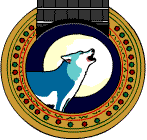Neil Young - the musician
Created | Updated Jan 28, 2002
Neil Young is an enduring rock star who refuses to retire and become a VJ. Throughout a career which started in the late sixties, he has reinvented himself and his music with the best of them, for Young has always had a valid finger in many pies; acoustic and electric, harmonica and piano, Dylan and Rotten.

Albums are a lucky dip with good odds: herbal, articulate country folk musings follow driving tales of social commentary, pioneering heads-down grunge trash emphasises melodies from cochlea heaven. Cryptic and contrary lyrics engender debate like a good film, though he writes about love with precision and authority. Catch a Neil Young gig on a reasonably good day (such as at the Fleadh Festival in London, June 2001) and you'll see a formidable display of self-expression through an instrument, especially within his brick outhouse backing band Crazy Horse, whose only boundaries are the entertainments licence of the venue.
Young's electric guitar technique is not exactly virtuoso. Bum notes are par for the course. But he invests emotional archery into his lyrics and his solos in equal measure, and if you ride the rollercoaster with him, you'll stagger away with your innards on full spin. The only man alive who gets anywhere near Jimi Hendrix, only slower.
Not known in the industry as a straightforward man to deal with, the old trickster could take a degree course in how to enrage record companies (his output on Geffen is generally best left to the die-hard fan). But it is an off-kilter outlook and a wilful embrace of change that makes people interesting, and a piercing sense of humour underlies all his work. An incomplete selection of ten of his best records follows.
Wanna go somewhere where they don't care who I am...
Two from the bleak period. The live album Time Fades Away* is ravaged beauty, screwed-up funk, grieving pedal-steel, adding to the pot two of Young's most eloquent piano ballads. His voice is shredded and desperate to please, with Crosby and Nash on backing vocals trying to cheer things up.
Highlight: Don't Be Denied
Tonight's the Night is further up the creek, and never fails to make you think yourself lucky. Fuelled by tequila and mourning, Young has OD'd on life and is taking everyone down with him.
Highlight: Speakin' Out
Now she's gone like a shooting star...
After the Goldrush* is consistent in its delights, managing to interweave his expressive solos in angry workouts like Southern Man with the insightful acoustic balladry of I Believe in You. The piano and harmony-laden musicianship on all tracks is sublime.
Highlight: Don't Let It Bring You Down
Sleeps with Angels* is a later example of Neil Young flying. Fragile shades of tack piano give way to some of Young's most hypnotic guitar work. Crazy Horse rise to the occasion again, providing acoustic power and a scope for experimentation that Del Amitri only dream of. The lyrics are beguiling and complex, the tone jumping from country reflection to electric introspection to wry grunge without batting an eyelid.
Highlight: Driveby
Out of control singin' with too much soul...
Harvest would prove the catalyst for the upcoming dark period: tight performances of well-crafted countrified material, a huge chart success, but there's still enough bite to be interesting. Try and have a listen to the astounding 1970 BBC 'In Concert' solo performance, previewing much of this album.
Highlight: Old Man
Ten years later, Young has been through the dark period and come out the other side. Forget the throwaway country rock of side two of Hawks and Doves*: side one contains some quiet gems. This is mystical bedroom folk to spook you out on a Friday night in.
Highlight: Lost in Space
It's better to burn out than to fade away...
Young's Godfather of Grunge monicker looks back to three songs on the Rust Never Sleeps* album, split down the middle into acoustic and electric but both sides as powerful. The anthem My My Hey Hey starts the album as a solo clap-along and finishes as a black spitting prototype for much nineties guitar rock. In between are some magnificent, sprawling stories of life on the road and gloriously energetic thrash with a purpose.
Highlight: Ride My Llama
Freedom was hailed as a return to form in 1989, and like Rust it features bewildering variety and an opener and closer, Rockin' in the Free World. A stripped-down three-piece band soars on the passionate electric numbers, and Young rediscovers his flair for ballads on Wrecking Ball, since covered by Emmylou Harris. Lyrics are razor-sharp and instrumentation is unusually diverse, with Spanish guitar and brass adding sparkle.
Highlight: Someday
His heart can't find a simple way to live with all those things...
Live albums and concert films make up a fair chunk of Young's output, not surprising for a musician so committed to live music. Two films stand out in the crowd. Unplugged takes the well-worn format and brings out some poignant, rarely-performed solo versions, continuing the healthy tradition of reworking old material. Like a Hurricane is transformed from the bloated electric showstopper to a fragile pump organ lament, and World on a String trades rough drunken rock for dark, whispered folk. Most of side two revisits the mellow Harvest Moon album with a fine band, though somehow the tunes still pack a punch.
Highlight: Look out for My Love
Year of the Horse* absolutely must be seen in a cinema with a decent sound system. The concert film taken in Super 8, as rough and unpolished as the Crazy Horse sound, by Jim Jarmusch features explosive performances, slapstick backstage footage and reluctantly revealing interviews.
Highlight: Barstool Blues
